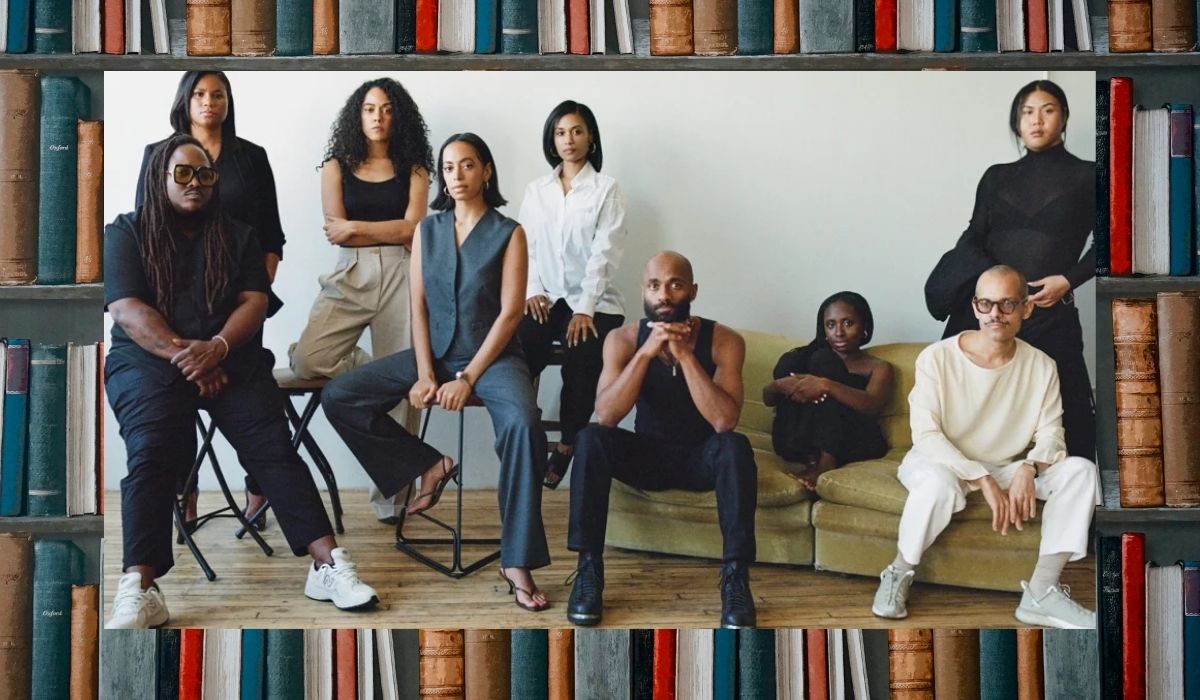Solange’s Saint Heron Starts Community Library For Rare Books By Black, Brown Authors
"The folks that know its value sometimes are the ones that are keeping it from the people that it's made for."


On October 18th, Saint Heron (co-founded by musician/artist Solange Knowles), in partnership with booksellers and Aesop skincare, opened its Saint Heron Library free to the public. Holding 50 titles of rare work, they encourage Black creators to check out books for research, study, and exploration. The digital collection (you check them out online) features sending physical books on a first-come, first-served basis.
The library allows users to loan the books for up to 45 days and provides materials to ship the book back. Book, singular, because only one can be checked out at a time. The books include exhibition catalogs, poetry, art catalogs, art, essays, non-fiction, anthologies, monographs, science fiction, literary journals, zines, biographies, photography, astrology, folklore, dramas, and psychological fiction. There’s literally something for everyone.
Season One
Each rollout will be categorized by season and each season curated by a different person. The inaugural season is curated by Rosa Duffy, founder of For Keeps Books. Duffy’s Atlanta-based boutique book shop also serves as a community space. Season One includes some highly recognizable authors such as speculative fiction novelist Octavia Butler, poet Langston Hughes, activist writer Audre Lorde, and more, but also a lot of new faces to those familiar with Black authors and artists.
“When people ask the purpose or mission of the space, it’s true accessibility because all of this stuff has existed for all of these years, it didn’t just pop up out of nowhere,” said Duffy to Shantel Pass, the Editorial Manager of Saint Heron. “But the truth is that it’s either hoarded, or we just don’t know much about it. The folks that know its value sometimes are the ones that are keeping it from the people that it’s made for.”
Duffy explained that often times it’s not malicious and it can be in very white spaces where Black readers, scholars, artists, etc. don’t feel welcome. “The library is so that these things that were meant to be in our hands are just in our hands in the same way that they were printed in the East Village, handed out for $1.50 by the droves,” said Duffy. “That’s kind of what I’m trying to mimic or duplicate. ‘You’re welcome to put your hands on it.'”
Saint Heron continues to transform
As an artist and with my background in museum studies, I’m most interested in viewing some of the exhibition catalogs. Outside of zines, these are among the rarest of books and provide a snapshot into a moment and set of ideas as laid out by the curator. Unlike zines, exhibition and art catalogs are very, very expensive from the jump. They are priced so high because they only print a few and the production cost of thick, photo quality paper is pricey.
It’s no surprise that exhibition catalogs make up a large portion of the selection as well, because Saint Heron since its founding in 2013 has been a music and cultural hub. The organization was founded with the release of a large collaborative album. Since then, Solange and the other members of Saint Heron have performed and exhibited in prestigious institutions. (Something they loved to promote, despite internal bigotry running amok.)
The group has navigated through visual, auditory, and other art spaces and so to move to the literary felt like a matter of time. In an interview with Artnet News, Solange spoke about how traveling around the country to different spaces of Black people having conversations about art and the preservation of Black art helped inspire them to continue. The newest phase of Saint Heron’s timed, digital projects includes exhibitions and more, meaning that this new lending library is one arm of the shift to a more multidisciplinary and agency platform.
“…as Black folks, we’re storytellers, just in general… It’s very much a part of who we are since the beginning of time. So… we’re trying to tell our history, keep our history & our culture alive.” -Rosa Duffy for Saint Heron Community Library: https://t.co/MmnLWxDyt8 pic.twitter.com/yjaMdGjlco
— SAINT HERON (@SaintHeron) October 16, 2021
Learning from other spaces (Solange shouts of Houston’s Project Row Houses — a model in community-based art, housing and more), Saint Heron is focused on accessibility. This is something Duffy touched on in her interview earlier when mentioning how many of these books are stored and hidden away. Without initiatives like this, these books often collect dust and value but are never valued by readers (including those outside of the authors’ community) and some researchers because the books never reach their hands.
While they do talk about the tactile nature of reading and looking at these books, I’d be lying if I didn’t say that I hope in future projects a few of them can be digitized for even more access. This might be hard to work out with copyright and other potential distribution issues, but I believe in them.
At the time of writing this, many of the books are already taken, however, the initiative is still worth sharing. The first season ends October 29, but in the meantime, you can sign up for the newsletter at the bottom of the site for a heads-up for next time. Also, take these authors/artists’ names and engage with the non-rare works they’ve published. Also, bibliophiles, check out For Keeps Books on Instagram!
(via CNN, image: Rafael Rios)
Want more stories like this? Become a subscriber and support the site!
—The Mary Sue has a strict comment policy that forbids, but is not limited to, personal insults toward anyone, hate speech, and trolling.—
Have a tip we should know? [email protected]
